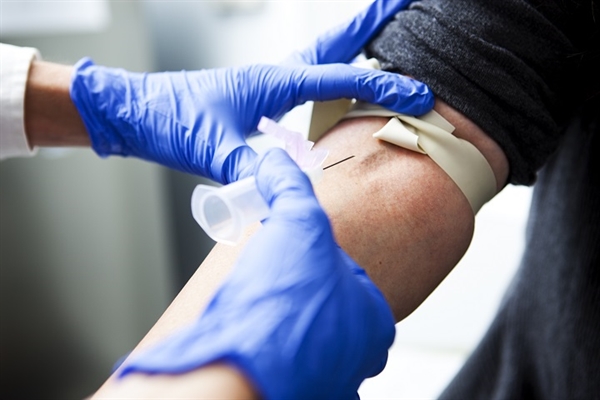January was National Blood Donor Month, and donating blood is a crucial part of our healthcare system. In the donations process, for every donor, there is also a phlebotomist—that person with the needle who helps collect the donor’s blood.
If you are studying to become a medical assistant, drawing blood may be part of your normal duties. In the beginning, you might feel uncomfortable or even a little anxious about performing this task. Don’t worry—you’re not alone. Others have felt those same jitters, but you can become more confident with practice and a new mindset.
First, remember that drawing blood is an essential function in healthcare. Whether it's for donation or a test, you are helping fill a vital role. Be proud of your contribution! Without you, the patient wouldn't be able to get a diagnosis for their ailments, or another patient wouldn't be able to get the blood they desperately need –sometimes, it’s truly a matter of life or death. Think of the task as heroic!
One reason you may be hesitant to draw blood is a fear of inflicting pain on the patient. While this is understandable, think back to your own experiences of having blood drawn. The sting only occurs when the needle punctures the skin. It’s momentary. And the benefits far outweigh the discomfort.
You may also worry about encountering a nervous patient. In this case, your job is to educate them and let them know what you're going to do before you do it. Tell them when to expect the needle and convey that the pain will be quick and temporary. You might even use small talk about the weather or a compliment about their attire to distract them. By taking the attention off of the process, you can help them to relax as much as possible, making the experience easier on both of you.
Still don’t like the idea of having to draw a patient’s blood? While you might be required to complete a phlebotomy course as part of your education, ultimately there are positions in healthcare that don’t require this skill. However, you may discover that practice and familiarization with the process wind up helping you shake your fears once and for all.
If you are considering a career in medical assisting, a Fortis education can help you get started on that path. Click here for more information or call us today at (855) 436-7847 and speak to one of our career counselors.


